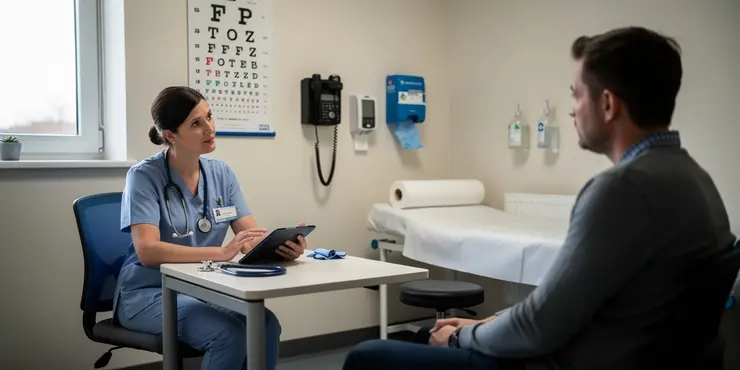
Find Help
More Items From Ergsy search
-
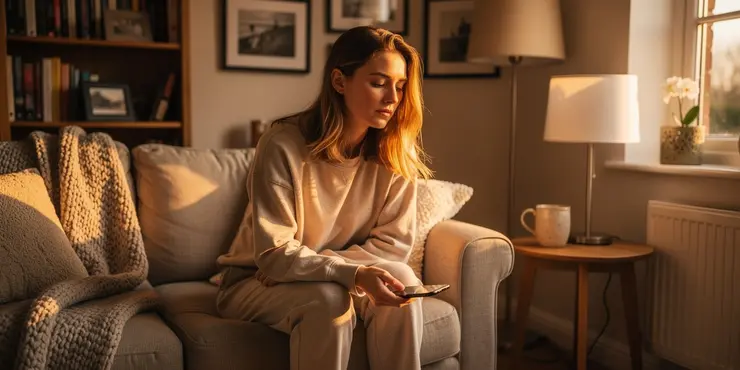
Can reducing screen time improve sleep quality?
Relevance: 100%
-
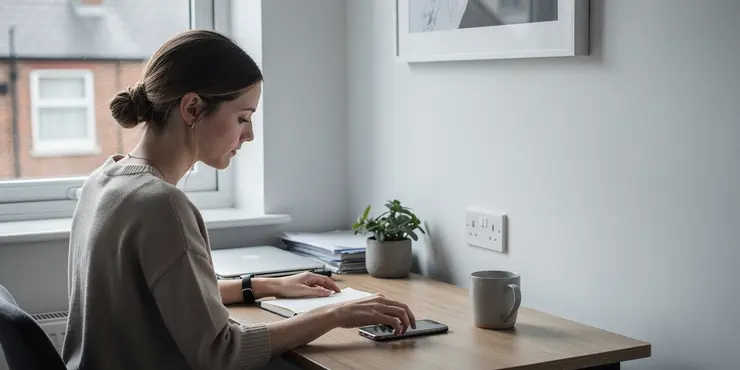
How does screen time affect sleep quality?
Relevance: 100%
-
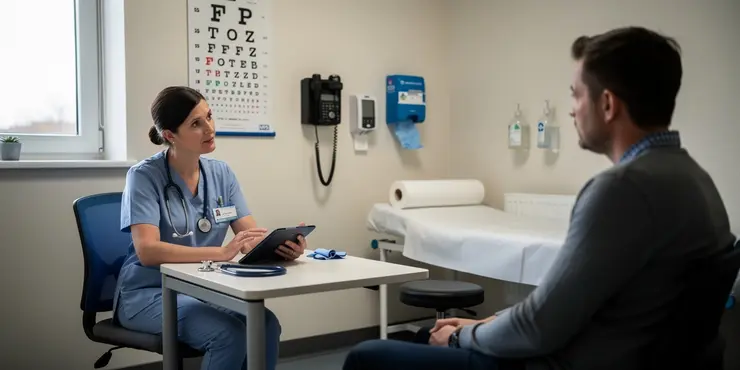
Study Shows Link Between Screen Time and Sleep Quality
Relevance: 97%
-
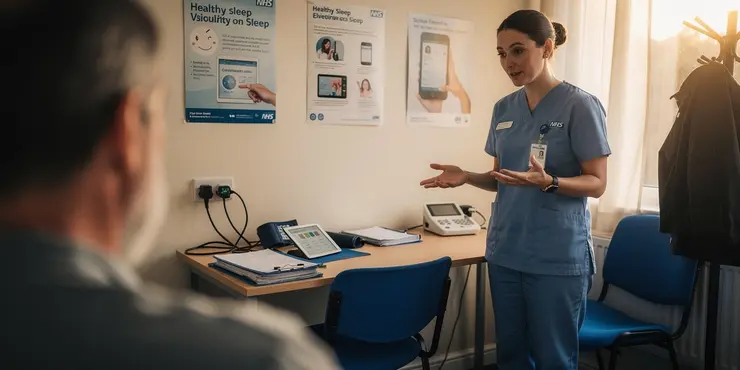
What is the main finding of the study linking screen time to sleep quality?
Relevance: 94%
-
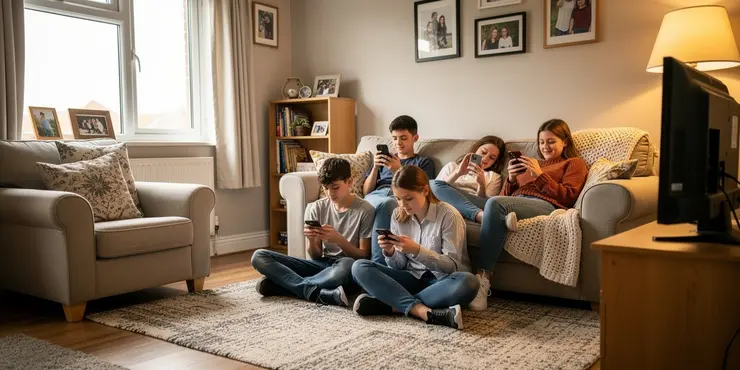
What demographic showed the most significant change in sleep quality due to screen time?
Relevance: 89%
-
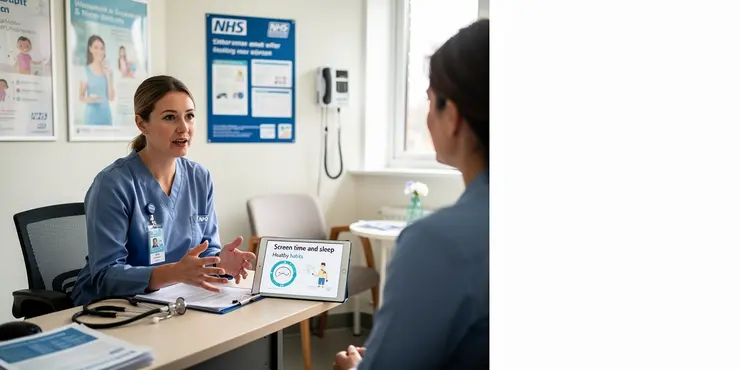
Does screen time impact REM sleep?
Relevance: 83%
-
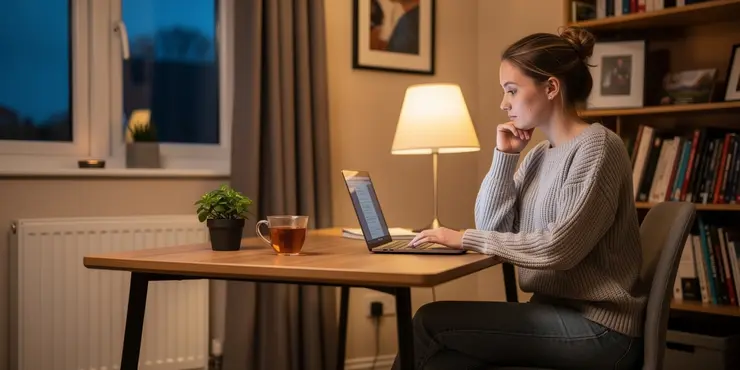
Is blue light from screens a factor in affecting sleep quality?
Relevance: 80%
-
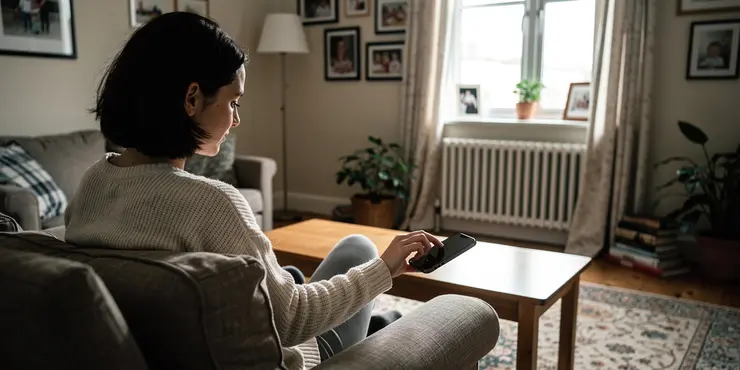
Are there any screen time guidelines recommended for improving sleep?
Relevance: 79%
-
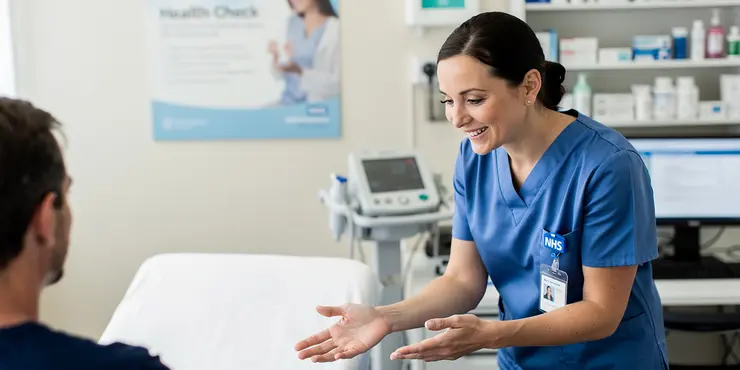
Is there a difference in screen time impact on sleep between weekdays and weekends?
Relevance: 79%
-
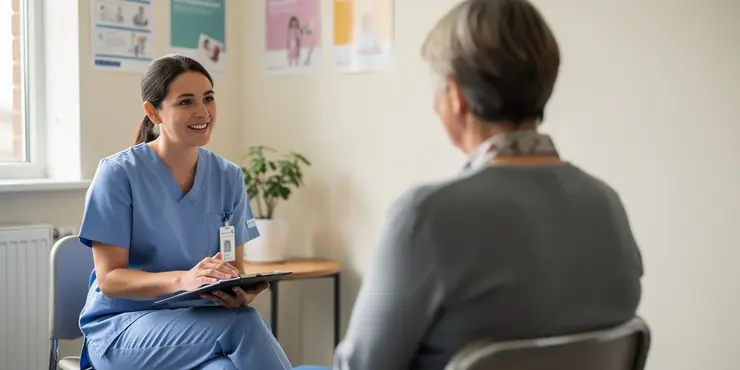
Does screen time affect both sleep onset and sleep maintenance?
Relevance: 78%
-
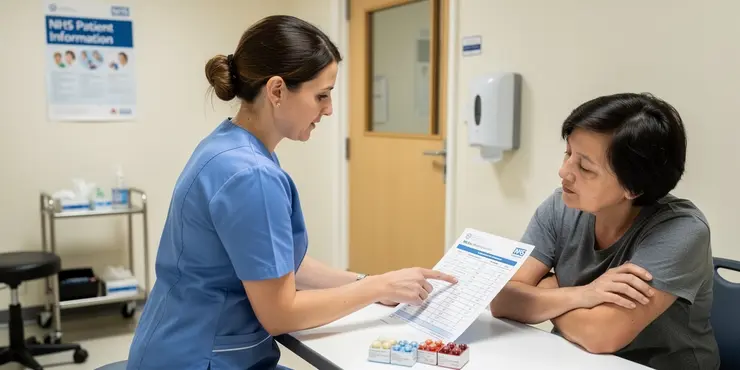
What are some tips for reducing screen time to improve sleep?
Relevance: 77%
-
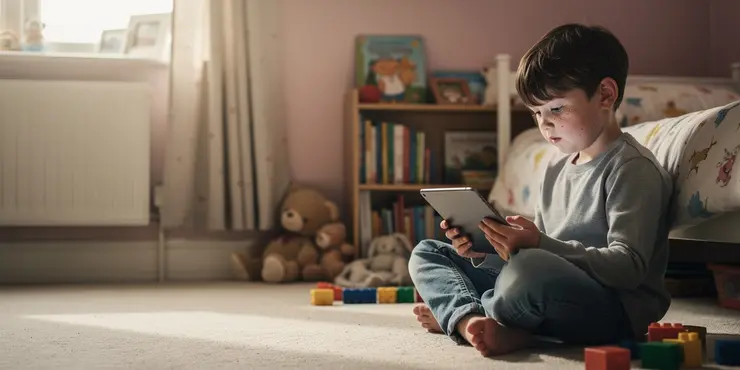
Are children more affected by screen time in relation to sleep than adults?
Relevance: 75%
-
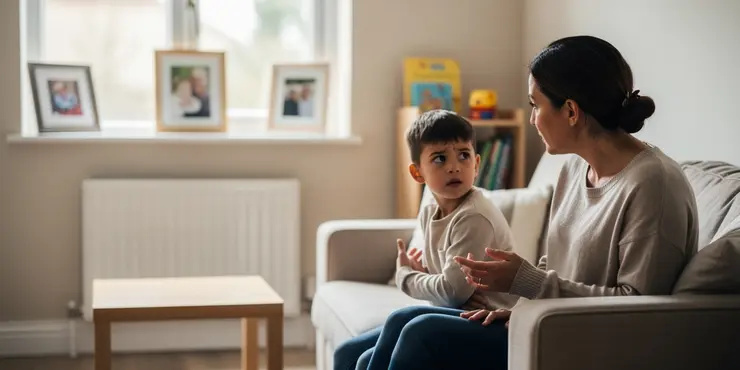
What is the role of parental monitoring in children's screen time and sleep?
Relevance: 69%
-
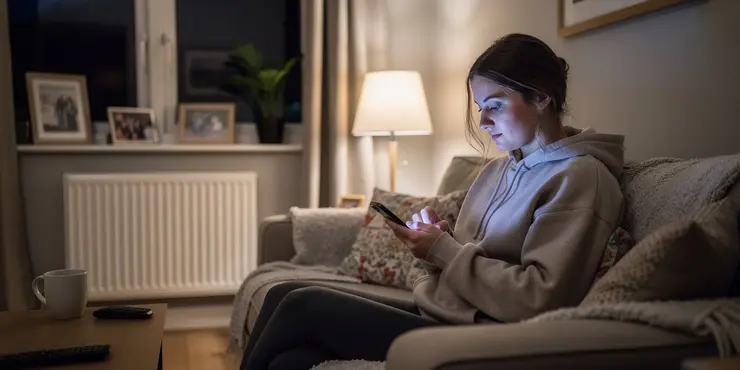
What are some long-term effects of poor sleep quality linked to screen time?
Relevance: 67%
-
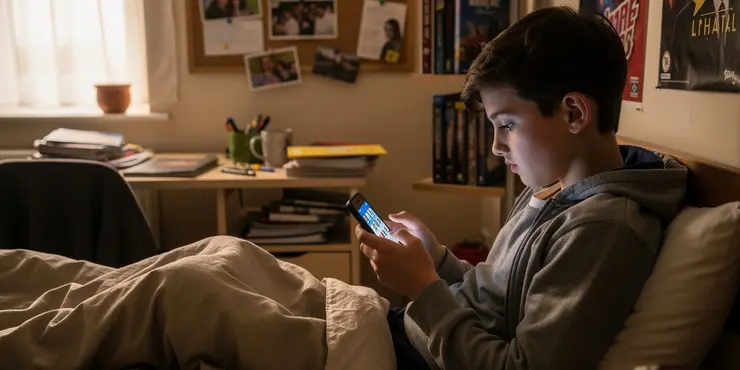
How does screen time before bed specifically affect adolescents?
Relevance: 63%
-
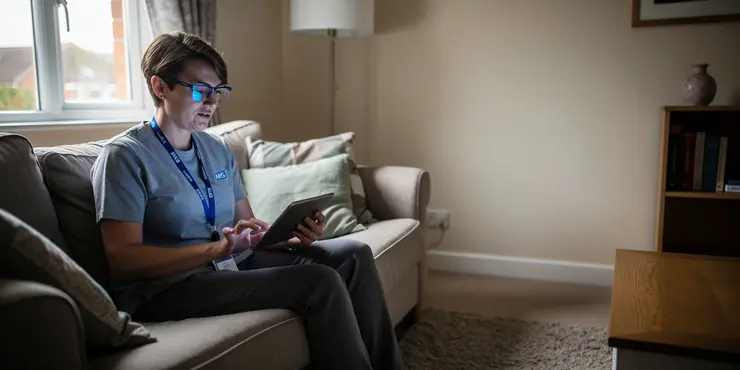
Do mitigation strategies like blue light glasses help improve sleep quality?
Relevance: 63%
-
How does sleep quality relate to menopause symptoms?
Relevance: 59%
-
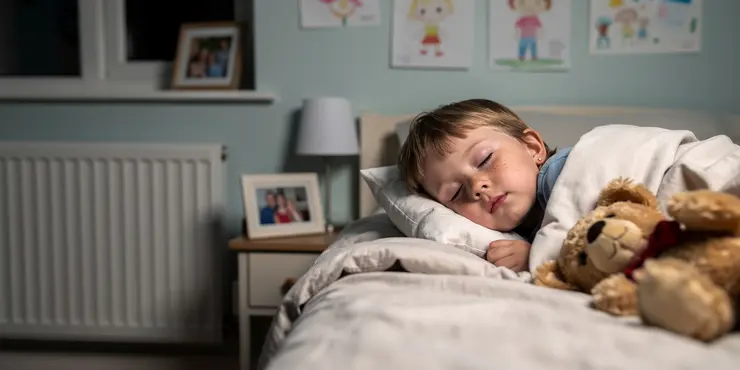
The Importance of Sleep for All Ages
Relevance: 45%
-
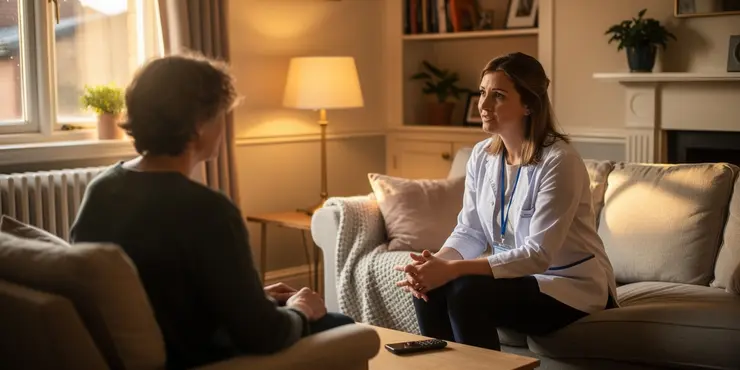
Top Tips to Help You Get a Good Nights Sleep
Relevance: 44%
-
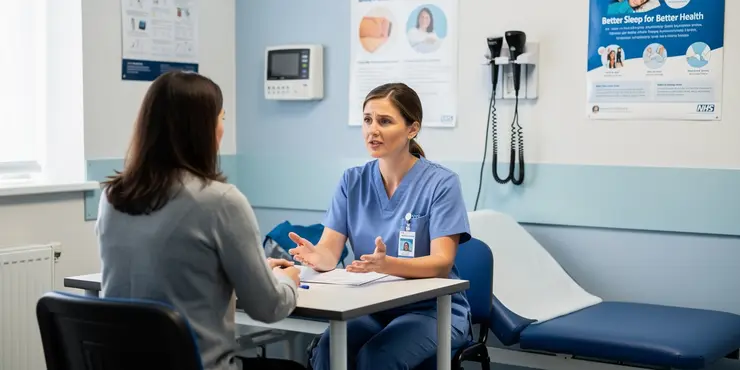
Can alcohol worsen sleep apnea?
Relevance: 39%
-
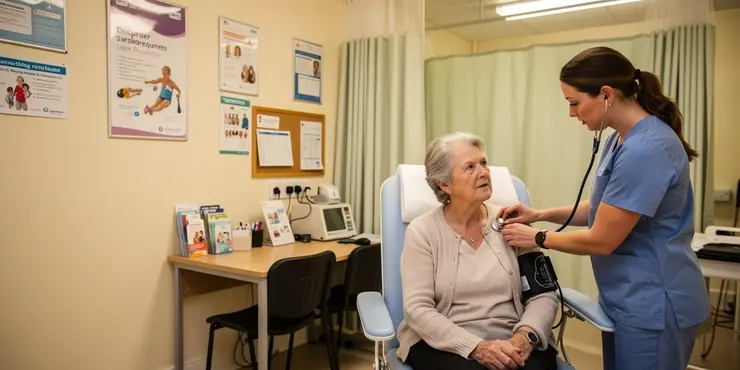
Is it safe to sleep after a concussion?
Relevance: 39%
-
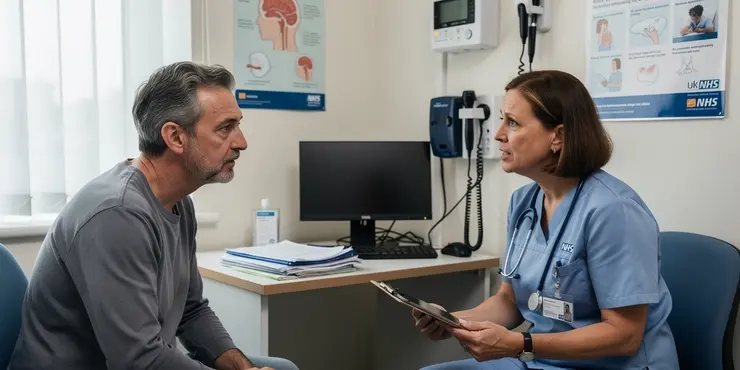
What is sleep apnea?
Relevance: 38%
-
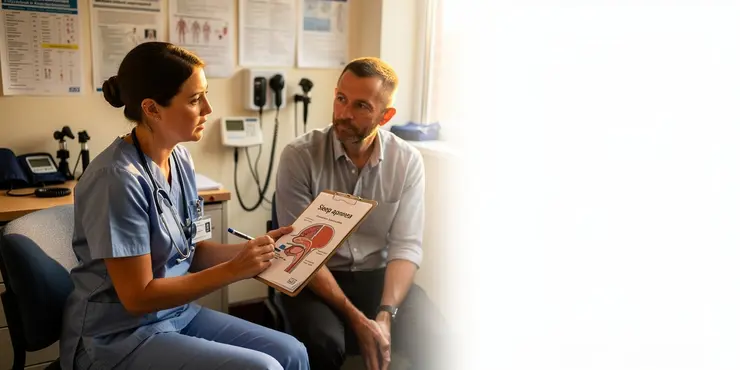
What is sleep apnoea?
Relevance: 38%
-
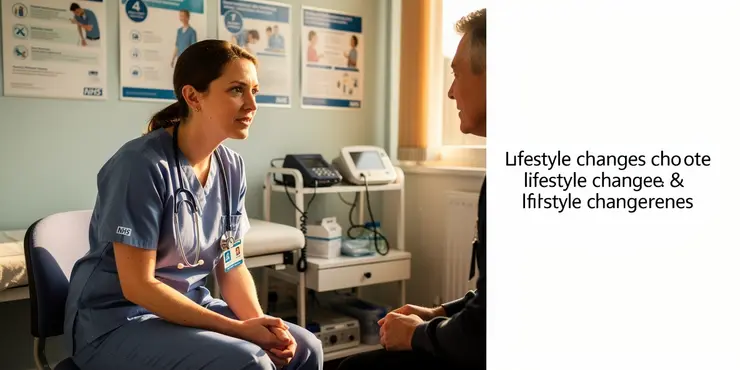
What lifestyle changes can help manage sleep apnea?
Relevance: 38%
-
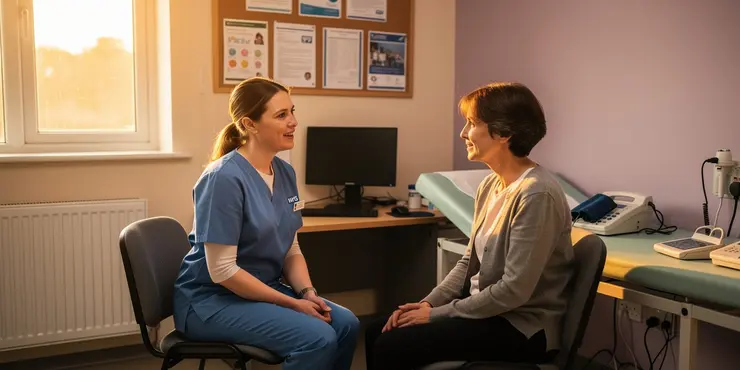
Why is sleep apnea dangerous?
Relevance: 38%
-
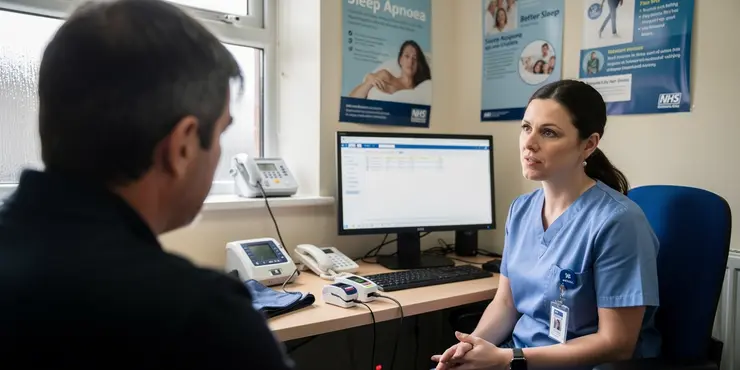
How common is sleep apnea?
Relevance: 37%
-
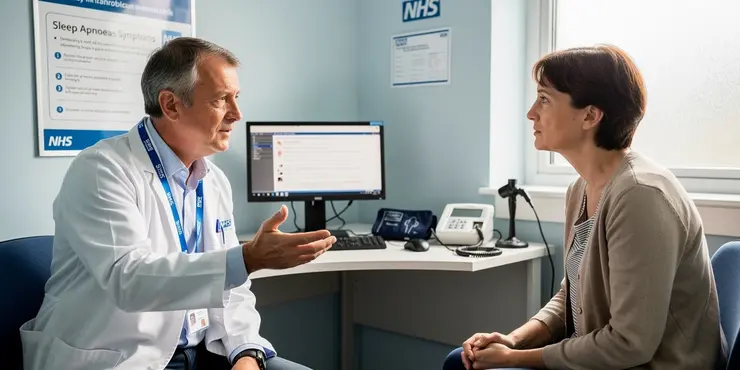
What are common symptoms of sleep apnea?
Relevance: 36%
-
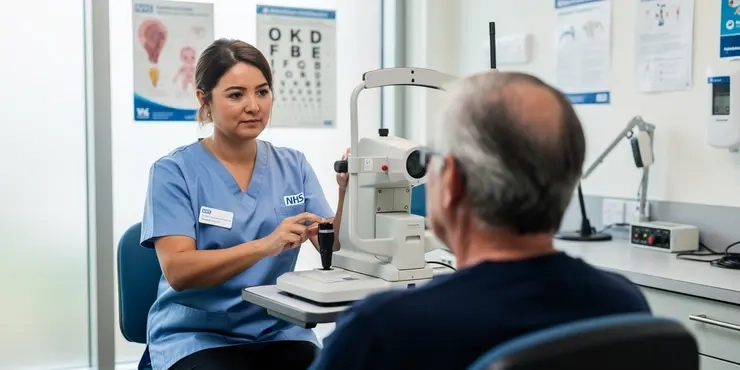
Derbyshire Diabetic Eye Screening - Diabetic Eye Screening
Relevance: 36%
-
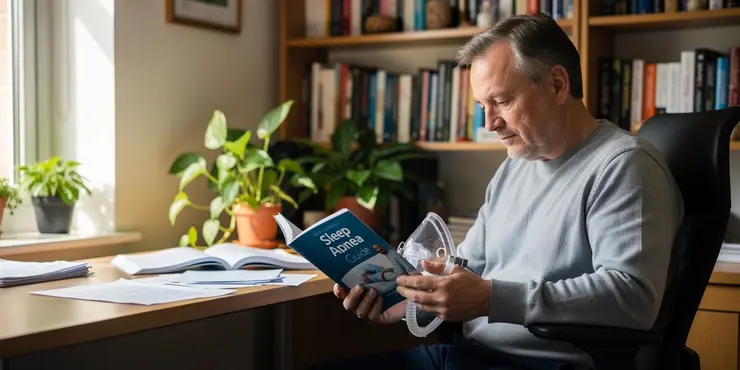
What is complex sleep apnea syndrome?
Relevance: 36%
-
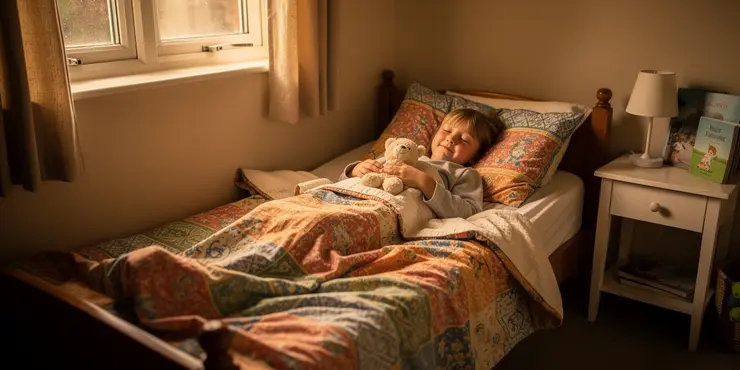
Can children have sleep apnea?
Relevance: 36%
-
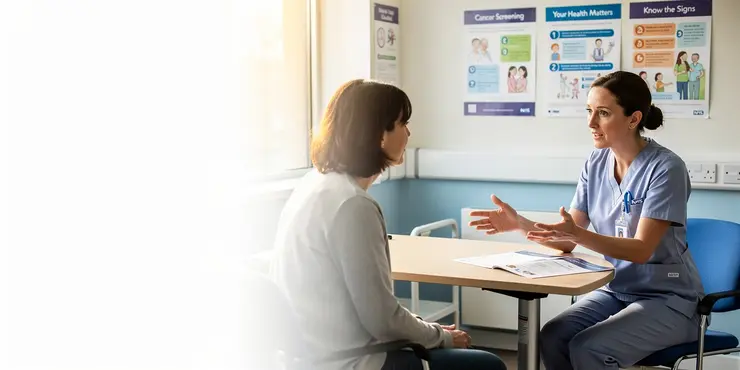
What is cancer screening?
Relevance: 35%
-
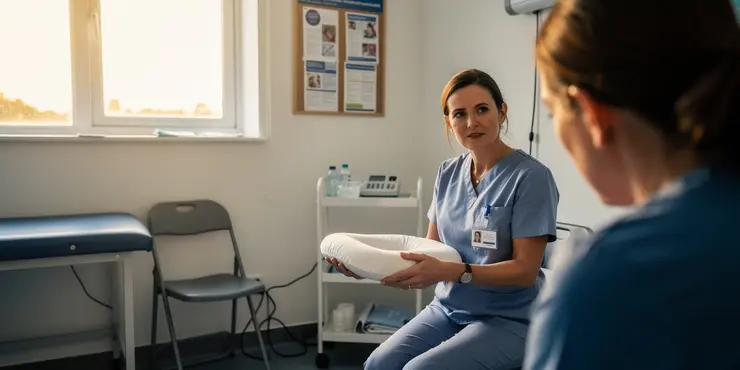
Are there any benefits to using baby sleep pillows?
Relevance: 35%
-
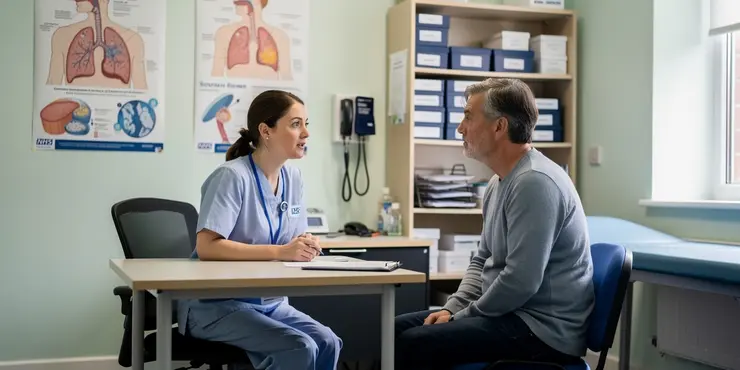
Is snoring always a sign of sleep apnea?
Relevance: 35%
-
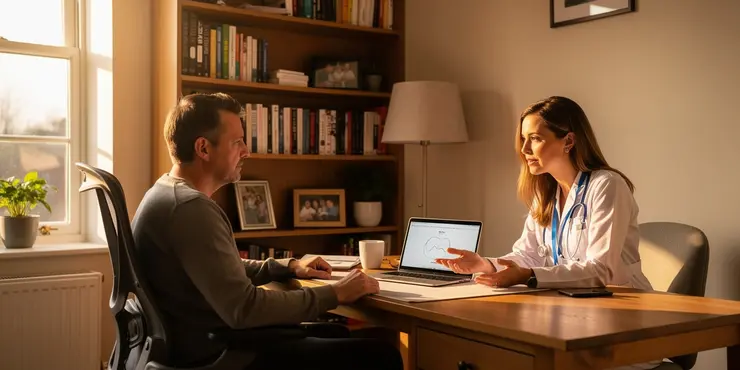
How is sleep apnea diagnosed?
Relevance: 35%
-
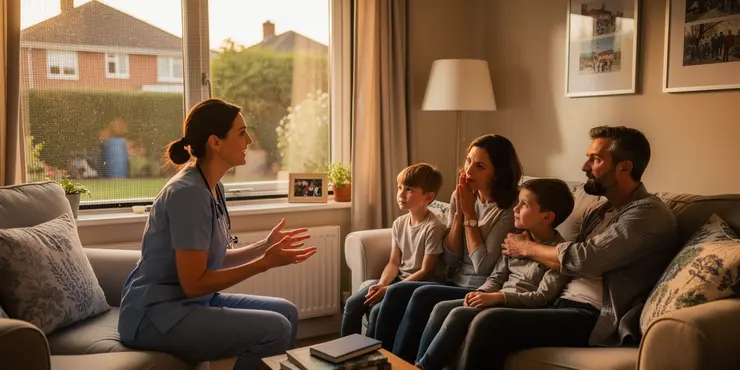
Are mosquito window screens effective in the UK?
Relevance: 35%
-
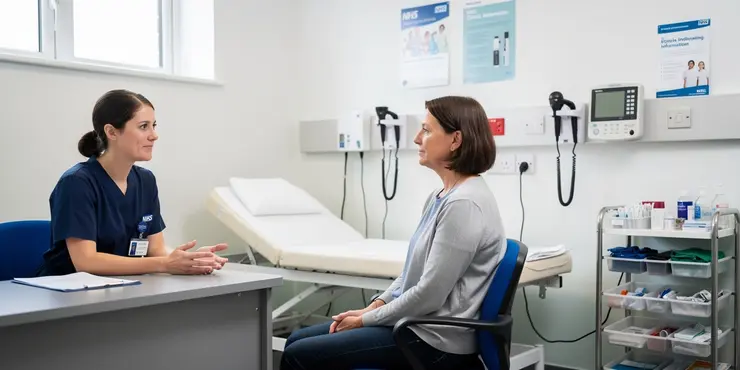
What is complex sleep apnea syndrome?
Relevance: 35%
-
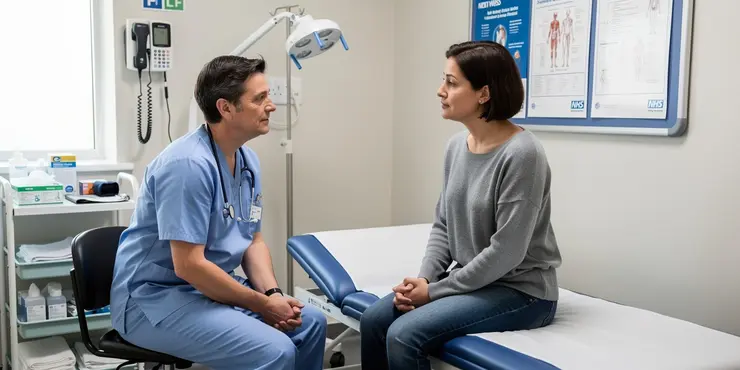
What should I do if I suspect I have sleep apnea?
Relevance: 34%
-
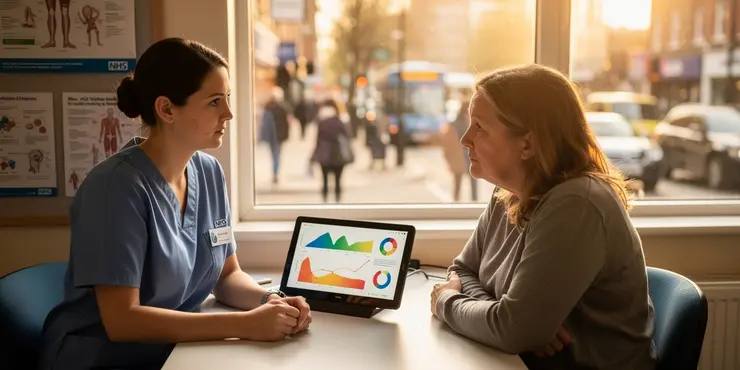
Is UK air quality changing?
Relevance: 34%
-
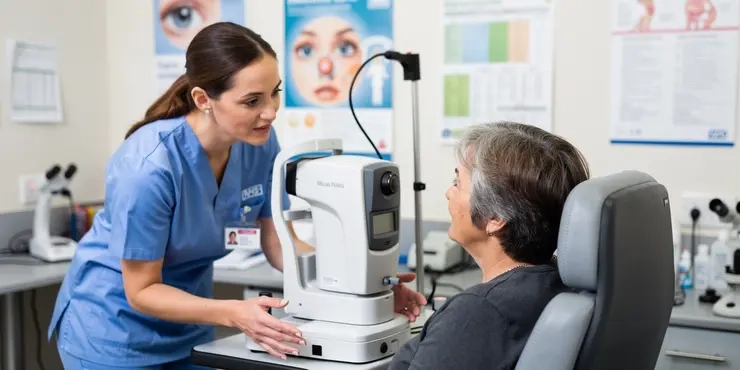
Diabetes Eye Screening
Relevance: 34%
-

Are there eco-friendly mosquito screen options?
Relevance: 34%
Introduction
In recent years, the amount of time people spend in front of screens has significantly increased, largely due to the rise in smartphone usage, the prevalence of computer-based jobs, and the popularity of digital entertainment. Consequently, researchers have become increasingly interested in understanding the impacts of screen time on various aspects of health, particularly sleep quality. A recent study has drawn attention to the correlation between screen time and the quality of sleep, highlighting potential concerns for public health.
The Study
The study, conducted by a team of researchers at a prominent university, involved over 2,000 participants aged between 18 and 65. Participants were required to answer a detailed questionnaire about their daily screen time habits, including the amount of time spent on mobile phones, computers, and watching television. They were also asked about their sleep patterns, quality of sleep, and any sleep disturbances they experienced.
The findings revealed a significant relationship between increased screen time and poorer sleep quality. Participants who spent more than four hours per day on screens reported more frequent sleep disturbances and lower overall sleep satisfaction compared to those with less screen time.
The Impact on Sleep Quality
One of the primary reasons postulated for the negative impact of screen time on sleep quality is the exposure to blue light emitted by screens. Blue light has been shown to interfere with the production of melatonin, a hormone that regulates sleep-wake cycles. This disruption can make it more difficult for individuals to fall asleep and can lead to less restful sleep when they do manage to doze off.
Furthermore, engaging with screens, especially before bedtime, can increase alertness and cognitive stimulation, making it harder for the brain to switch off and transition into a state conducive to sleep. This is particularly concerning given the popularity of using smartphones and tablets before bed.
Recommendations
Based on the study's findings, experts recommend several strategies for improving sleep quality relative to screen time. One key suggestion is to reduce exposure to screens in the hour leading up to bedtime. Individuals are advised to engage in relaxing activities during this time, such as reading a physical book or practising relaxation exercises.
Additionally, using features such as 'night mode' on devices, which reduces blue light emission, can also be beneficial. Setting daily screen time limits and ensuring a balanced approach to work and leisure screen use are also important steps for mitigating the potential negative impacts on sleep.
Conclusion
The link between screen time and sleep quality has become an area of growing concern, with significant implications for public health. As screen time continues to be an integral part of modern life, understanding and managing its effects on sleep is crucial. By adopting simple strategies and being mindful of screen usage, individuals can work towards improving their sleep quality and overall well-being.
Introduction
These days, people spend a lot more time looking at screens. This is because of smartphones, computer jobs, and online shows and games. So, scientists want to know how screen time affects health, especially how well people sleep. A recent study showed that using screens a lot might be bad for our sleep and health.
The Study
Scientists from a big university did a study with over 2,000 people aged 18 to 65. They asked these people questions about how much time they spend on their phones, computers, and TVs. They also asked about how well they sleep and if they have trouble sleeping.
The study found that people who look at screens more than four hours a day have more sleep problems. They also said they don't sleep as well as people who use screens less.
The Impact on Sleep Quality
Screens give off blue light, which can make it hard for us to sleep. Blue light stops our brains from making melatonin, which is a sleep hormone. This makes it harder to fall asleep and stay asleep.
Looking at screens, especially before bed, can make us stay awake and keep our brain busy. This makes it hard for us to relax and get ready for sleep. Many people look at phones and tablets before bed, which can worsen sleep problems.
Recommendations
Experts have some ideas for better sleep. One idea is to stop using screens at least one hour before bed. Instead, people can read a real book or do relaxing exercises.
Using 'night mode' on devices can help because it has less blue light. People should also set limits on screen time and try to balance work and fun screen activities. This can help with sleep.
Conclusion
Screen time and how well we sleep is a big topic now because it affects our health. We need to learn how to handle screen use so it doesn't mess up our sleep. By following simple tips and watching how much we use screens, we can sleep better and feel better overall.
Frequently Asked Questions
What is the main finding of the study linking screen time to sleep quality?
The study found that increased screen time is associated with poorer sleep quality.
How does screen time affect sleep quality?
Screen time can interfere with sleep by delaying sleep onset, reducing sleep duration, and affecting sleep cycles.
What types of screens were included in the study?
The study typically includes screens from smartphones, tablets, computers, and televisions.
Is blue light from screens a factor in affecting sleep quality?
Yes, blue light emitted by screens can suppress melatonin production, making it harder to fall asleep.
Does the study suggest a cutoff time for screen usage before bed?
While the study might not specify an exact time, experts often recommend avoiding screens at least 1-2 hours before bedtime.
Are children more affected by screen time in relation to sleep than adults?
Yes, children are particularly sensitive to screen time's impact on sleep, affecting their developmental sleep needs.
Did the study distinguish between different types of screen content?
Some studies do differentiate, noting that interactive content, such as video games, may be more stimulating than passive content like watching videos.
Can reducing screen time improve sleep quality?
Yes, reducing screen time, especially before bed, can help improve sleep quality.
What are some tips for reducing screen time to improve sleep?
Some tips include setting a digital curfew, using blue light filters, and creating a bedtime routine without screens.
Is there a difference in screen time impact on sleep between weekdays and weekends?
Screen time patterns often vary between weekdays and weekends, which can result in different sleep impacts.
How does screen time before bed specifically affect adolescents?
Screen time can cause adolescents to fall asleep later and reduce overall sleep duration, crucial for their development.
What are some long-term effects of poor sleep quality linked to screen time?
Long-term effects may include increased risks of obesity, depression, and cognitive impairments.
How does the study measure sleep quality?
Sleep quality is often measured using self-reports, sleep diaries, and sometimes devices that track sleep patterns.
Are there any screen time guidelines recommended for improving sleep?
Recommendations include setting limits on daily screen time and turning off screens at least an hour before bed.
Does screen time impact REM sleep?
Excessive screen time can disrupt the sleep cycle, including REM sleep, which is essential for memory and mood regulation.
Do mitigation strategies like blue light glasses help improve sleep quality?
Blue light glasses may help, but reducing screen exposure before bed is generally more effective.
What demographic showed the most significant change in sleep quality due to screen time?
Adolescents and young adults often experience the most significant changes in sleep quality linked to screen time.
Does screen time affect both sleep onset and sleep maintenance?
Yes, screen time can make it harder to fall asleep and can also lead to more awakenings during the night.
How do researchers account for variables like caffeine or lifestyle in the study?
Studies often control for such variables through participant questionnaires and excluding confounding factors where possible.
What is the role of parental monitoring in children's screen time and sleep?
Parental monitoring can significantly help reduce screen time and establish healthier sleep routines for children.
What did the study find about screen time and sleep?
The study looked at how screen time affects sleep. It found that using screens a lot can make it harder to sleep.
To help with sleep, you can try these tips:
- Use screens less before bed.
- Have a bedtime routine.
- Make your bedroom comfy for sleep.
Using these ideas might help you sleep better.
The study says that looking at screens for a long time can make it harder to sleep well.
Does looking at screens make it hard to sleep well?
Looking at screens can make it hard to fall asleep. It can also make us sleep less and mess up our sleep patterns.
What screens were in the study?
This question asks about the different kinds of screens that the study looked at.
Think about computers, tablets, phones, or TVs. These are examples of screens.
If you find reading hard, use a ruler or your finger to guide you as you read each line. You can also ask someone to read it with you.
The study looks at screens like phones, tablets, computers, and TVs.
Does blue light from screens affect how well we sleep?
Do the bright screens we look at before bed make it hard to sleep? They might make it tougher to fall asleep. Try these tips to help:
- Turn off screens 1 hour before bed.
- Use a blue light filter on your devices.
- Read a book or listen to calming music instead.
Yes, blue light from screens can stop your body from making melatonin. This makes it harder to fall asleep.
What time should I stop using screens before bed?
Experts say it's a good idea to stop using screens like phones or tablets at least 1 to 2 hours before you go to bed.
Do screens make it harder for kids to sleep compared to grown-ups?
Yes, screen time can make it hard for children to sleep well. This is important because kids need good sleep to grow and learn.
Did the study look at different kinds of screen content?
This means: Did the study see if there are different types of things on the screen like games, videos, or reading? Sometimes different things can have different effects.
Tips to understand better:
- Use pictures or drawings to show different screen things like games or videos.
- Talk with someone about what you see on screens to help understand.
Some studies say that playing video games can be more exciting than just watching videos. This is because video games let you interact and do things, while videos are just something you watch.
Can watching screens less help you sleep better?
Yes, spending less time looking at screens, like phones and tablets, before bed can help you sleep better.
How can I spend less time on screens to sleep better?
Here are some easy ways to use screens less and sleep better:
- Stop looking at screens at least one hour before bed.
- Read a book or listen to calm music instead of using screens.
- Use "night mode" on your screens to make them softer on your eyes.
- Keep your phone or tablet out of your bedroom.
- Do something relaxing like drawing or doing a puzzle before sleep.
Try using an alarm clock instead of your phone to wake up. This means you don't have to keep your phone by your bed.
Here are some helpful tips:
1. Turn off screens before bed.
2. Use special glasses or apps to block blue light.
3. Make a calming bedtime routine without screens.
Does Screen Time Affect Sleep Differently on Weekdays and Weekends?
Everyone needs good sleep. Too much time looking at screens like TVs, phones, or tablets can make it hard to sleep. But does it make a difference if it's a weekday or a weekend?
If you have trouble with this question, here are some things you can do:
- Ask someone to read it with you.
- Use a ruler or your finger to help you follow the words.
- Look for pictures or videos about screen time and sleep.
Screen time means how much you use things like TVs, tablets, or phones. You might use screens differently on weekdays and weekends. This can change how you sleep.
How does using screens before bed affect teenagers?
Using phones, tablets, or computers before bed can make it hard for teenagers to sleep.
Here are some ways it affects them:
- Screens give off a bright light that tricks the brain into thinking it's daytime.
- This light makes it harder to fall asleep.
- Teens might not get enough rest and feel tired the next day.
- Being tired can make it hard for them to pay attention in school.
Here are some tips to help:
- Stop using screens at least one hour before bedtime.
- Do calming activities like reading a book or taking a warm bath.
- Try using apps or settings that reduce blue light on screens.
Watching screens like TVs, phones, or tablets can make it harder for teenagers to fall asleep. This can mean they sleep less, which is very important for them to grow well.
What happens if you don't sleep well because you use screens too much?
Over time, some things might happen. You might gain extra weight, feel really sad, or have trouble thinking clearly.
How do they check how well people sleep?
We can learn about how well you sleep by asking you about it, using a sleep diary, or with a gadget that checks your sleep.
Can watching screens before bed affect sleep?
Yes, screens can make it hard to sleep.
Try not to look at screens like phones, tablets, or TVs for 1 hour before bed.
You can read a book or listen to calming music instead.
You can try using tools that read text out loud to help with reading. You can also use apps that make reading easier by changing how the text looks.
Here are some ideas to help with screen time:
- Don’t use screens for too long each day.
- Turn off screens one hour before you go to sleep.
Does using screens affect sleep?
Using screens too much can make it hard to sleep well. It's important to get good sleep to help your memory and keep you happy.
Can wearing blue light glasses help you sleep better?
Wearing special glasses might help with blue light from screens, but it's even better to spend less time on screens before going to bed.
Who had the biggest change in sleep because of screen time?
Young people and teenagers may have trouble sleeping if they use screens a lot.
Does using screens make it hard to fall asleep and stay asleep?
Looking at screens a lot can make it hard for you to sleep. It might take longer to fall asleep, and you might wake up in the night. Try to stop using screens like TVs, phones, and tablets at least one hour before bed. Reading a book or listening to calm music can help you relax and sleep better.
Yes, looking at screens can make it harder to go to sleep and can wake you up more during the night.
How do people studying things deal with caffeine or lifestyle in the study?
When researchers study something, they need to think about things like caffeine or lifestyle. These things can change the results. Here is how they manage it:
- Make a plan: Researchers plan carefully to understand how caffeine or lifestyle might affect the study.
- Ask questions: They ask people about their caffeine use and lifestyle, like how much coffee they drink or how active they are.
- Compare groups: They compare different groups: people who drink a lot of coffee and people who don’t, for example.
- Use math: Researchers use math to see how these things affect their findings.
If you find reading hard, try these:
- Ask for help: A friend or family member can read with you.
- Use reading tools: Apps or e-readers that read aloud can be useful.
- Take breaks: Read a little bit at a time so you don’t get tired.
Studies ask people questions and try to remove things that might change the results.
How do parents help with children's screen time and sleep?
Parents keeping an eye on their kids' screen time can really help. It can make sure kids don't use screens too much. This also helps kids get better sleep.
Useful Links
This website offers general information and is not a substitute for professional advice.
Always seek guidance from qualified professionals.
If you have any medical concerns or need urgent help, contact a healthcare professional or emergency services immediately.
Some of this content was generated with AI assistance. We’ve done our best to keep it accurate, helpful, and human-friendly.
- Ergsy carfully checks the information in the videos we provide here.
- Videos shown by Youtube after a video has completed, have NOT been reviewed by ERGSY.
- To view, click the arrow in centre of video.
- Most of the videos you find here will have subtitles and/or closed captions available.
- You may need to turn these on, and choose your preferred language.
- Go to the video you'd like to watch.
- If closed captions (CC) are available, settings will be visible on the bottom right of the video player.
- To turn on Captions, click settings .
- To turn off Captions, click settings again.
More Items From Ergsy search
-

Can reducing screen time improve sleep quality?
Relevance: 100%
-

How does screen time affect sleep quality?
Relevance: 100%
-

Study Shows Link Between Screen Time and Sleep Quality
Relevance: 97%
-

What is the main finding of the study linking screen time to sleep quality?
Relevance: 94%
-

What demographic showed the most significant change in sleep quality due to screen time?
Relevance: 89%
-

Does screen time impact REM sleep?
Relevance: 83%
-

Is blue light from screens a factor in affecting sleep quality?
Relevance: 80%
-

Are there any screen time guidelines recommended for improving sleep?
Relevance: 79%
-

Is there a difference in screen time impact on sleep between weekdays and weekends?
Relevance: 79%
-

Does screen time affect both sleep onset and sleep maintenance?
Relevance: 78%
-

What are some tips for reducing screen time to improve sleep?
Relevance: 77%
-

Are children more affected by screen time in relation to sleep than adults?
Relevance: 75%
-

What is the role of parental monitoring in children's screen time and sleep?
Relevance: 69%
-

What are some long-term effects of poor sleep quality linked to screen time?
Relevance: 67%
-

How does screen time before bed specifically affect adolescents?
Relevance: 63%
-

Do mitigation strategies like blue light glasses help improve sleep quality?
Relevance: 63%
-
How does sleep quality relate to menopause symptoms?
Relevance: 59%
-

The Importance of Sleep for All Ages
Relevance: 45%
-

Top Tips to Help You Get a Good Nights Sleep
Relevance: 44%
-

Can alcohol worsen sleep apnea?
Relevance: 39%
-

Is it safe to sleep after a concussion?
Relevance: 39%
-

What is sleep apnea?
Relevance: 38%
-

What is sleep apnoea?
Relevance: 38%
-

What lifestyle changes can help manage sleep apnea?
Relevance: 38%
-

Why is sleep apnea dangerous?
Relevance: 38%
-

How common is sleep apnea?
Relevance: 37%
-

What are common symptoms of sleep apnea?
Relevance: 36%
-

Derbyshire Diabetic Eye Screening - Diabetic Eye Screening
Relevance: 36%
-

What is complex sleep apnea syndrome?
Relevance: 36%
-

Can children have sleep apnea?
Relevance: 36%
-

What is cancer screening?
Relevance: 35%
-

Are there any benefits to using baby sleep pillows?
Relevance: 35%
-

Is snoring always a sign of sleep apnea?
Relevance: 35%
-

How is sleep apnea diagnosed?
Relevance: 35%
-

Are mosquito window screens effective in the UK?
Relevance: 35%
-

What is complex sleep apnea syndrome?
Relevance: 35%
-

What should I do if I suspect I have sleep apnea?
Relevance: 34%
-

Is UK air quality changing?
Relevance: 34%
-

Diabetes Eye Screening
Relevance: 34%
-

Are there eco-friendly mosquito screen options?
Relevance: 34%


